Accordingly, on the afternoon of September 6, Deputy Prime Minister Tran Hong Ha attended and spoke at the launching ceremony of the Electronics and Semiconductor Center (ESC) at Ho Chi Minh City High-Tech Park (SHTP).
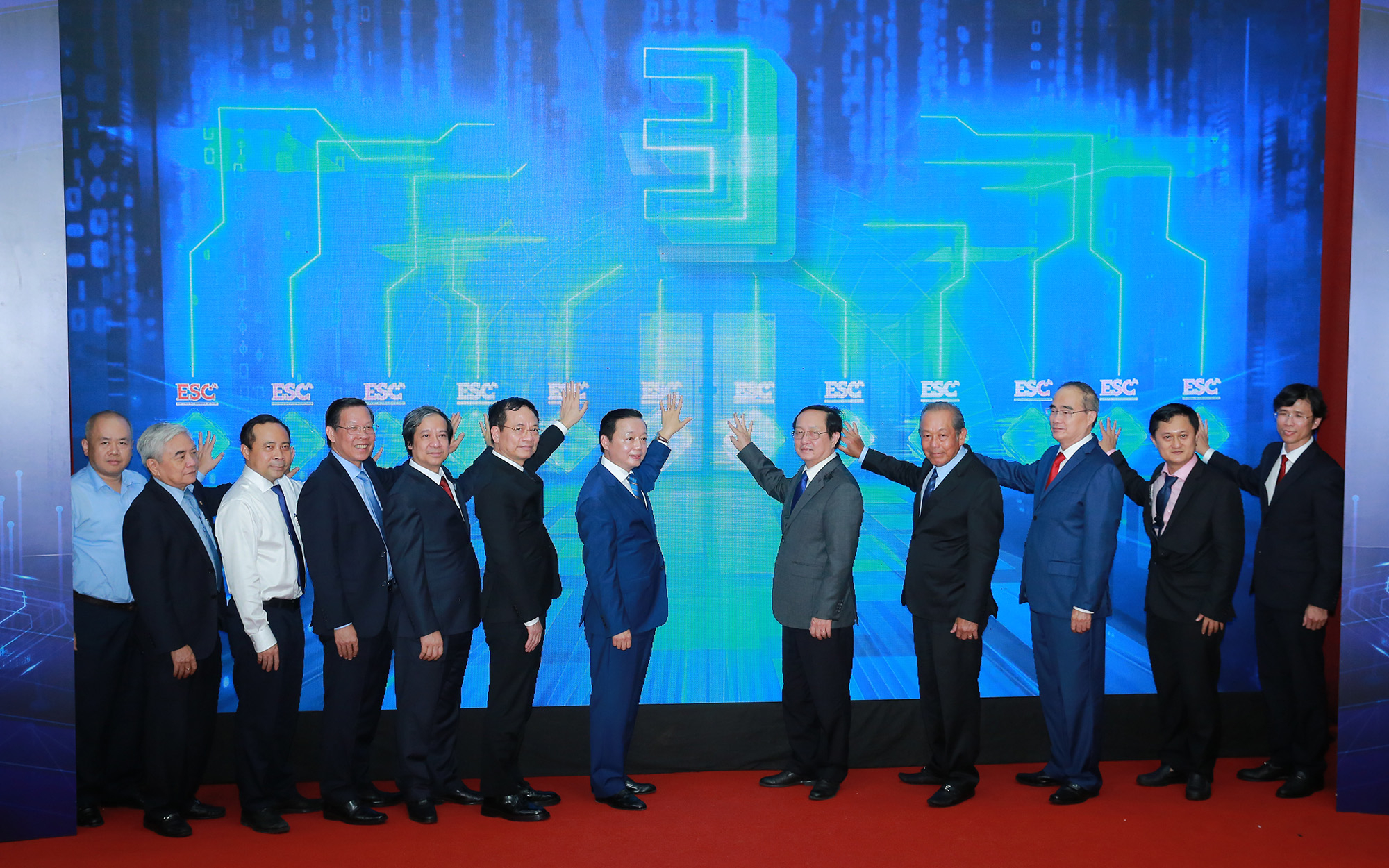
Deputy Prime Minister Tran Hong Ha and delegates performed the launching ceremony of the Electronics and Semiconductor Center (ESC).
According to the report, by the end of 2022, the country had more than 1,000 scientific articles published internationally in the semiconductor industry, nearly 650 scientific articles published internationally related to the microchip field. In the field of chip design, there are about 50 enterprises in Vietnam with a total workforce of more than 5,000 Vietnamese engineers and the trend is increasing.
Developing a supporting business ecosystem and a team of chip design engineers and electronics engineers will help Vietnam gradually upgrade and participate more deeply in the stages of the semiconductor microchip value chain. According to international microchip associations, if this development trend is followed well, Vietnam can think about producing its own chips from 2030 onwards.
The Electronic and Semiconductor Center (ESC) aims to improve the quality of human resources for two priority development stages of Vietnam: microchip design and microchip application. These stages will serve the goal of developing domestic enterprises, consolidating the goal of positioning Ho Chi Minh City in particular and Vietnam in general as the center of semiconductor microchip design in the region and the world .
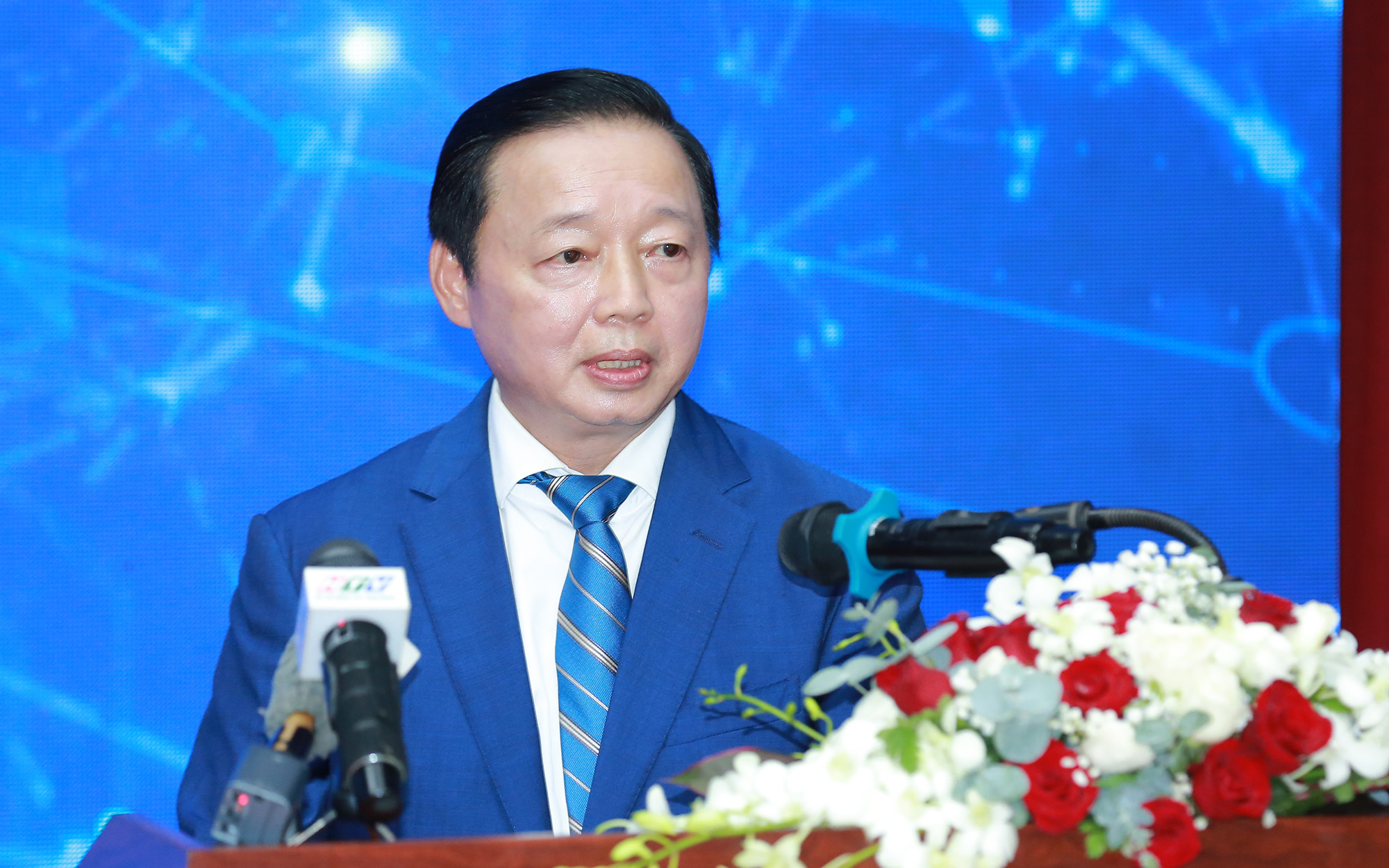
According to the Deputy Prime Minister, the semiconductor industry plays an increasingly important role in the digital transformation revolution, green transformation, and knowledge economy.
Speaking at the ceremony, Deputy Prime Minister Tran Hong Ha said that the launch of the Center for Electronics and Semiconductors is a testament to the process of Ho Chi Minh City testing new policies and models in the spirit of Resolution No. 98/2023/QH15 dated June 24, 2023 of the National Assembly on piloting a number of specific mechanisms and policies for the development of Ho Chi Minh City, to create new driving forces in the development process.
According to the Deputy Prime Minister, the semiconductor industry plays an increasingly important role in the digital transformation revolution, green transformation, and knowledge economy, replacing the previous development model based on natural resources. Meanwhile, Vietnam has the potential of extremely hard-working, studious people, and a team of scientists who are always concerned with the development of the country.
"There cannot be a developed semiconductor industry without a team of highly qualified and specialized human resources. We have chosen the endless resource of intelligence along with mobilizing, connecting, and cooperating to attract talent, as a new driving force for development. This is the right direction," the Deputy Prime Minister emphasized.
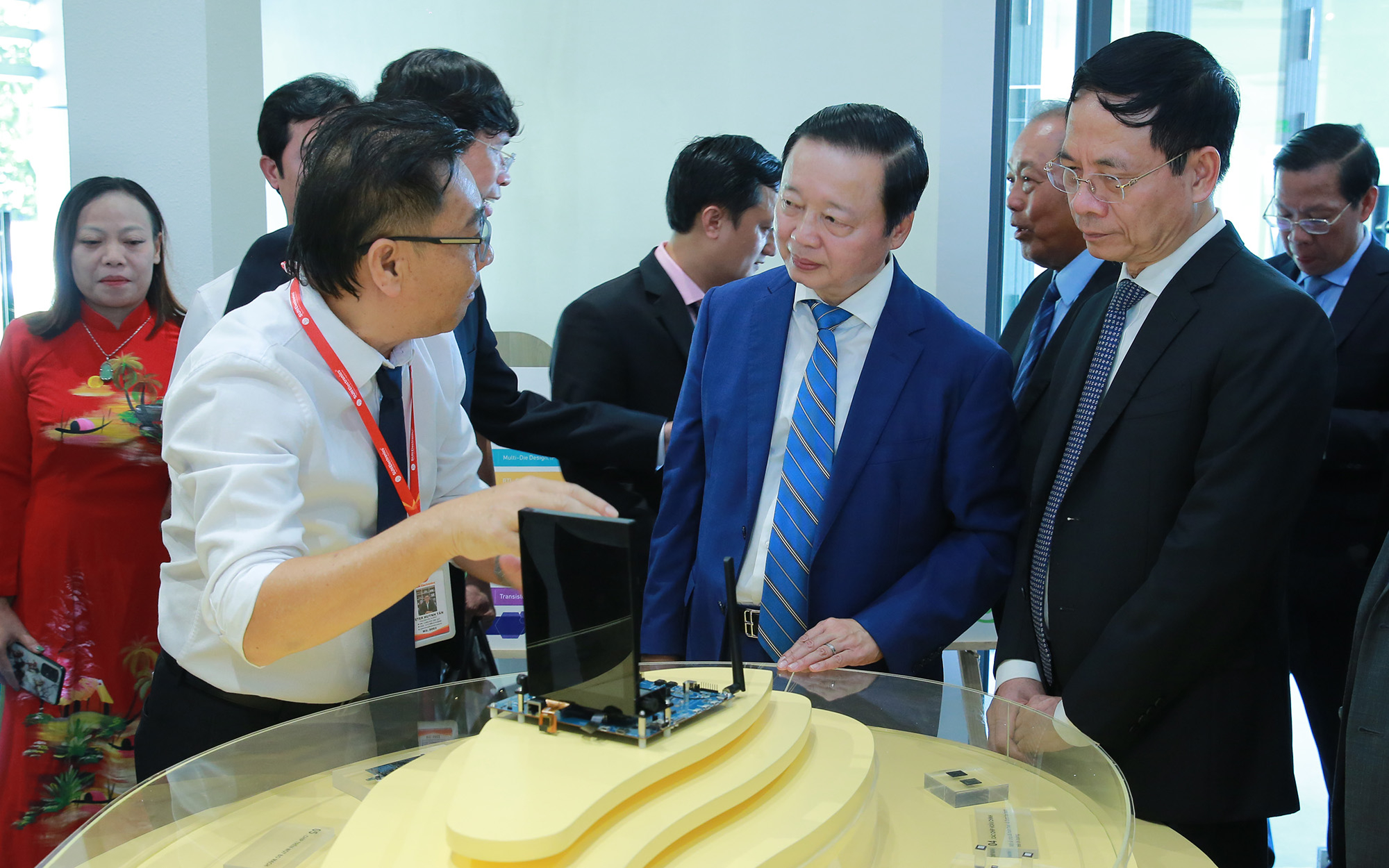
Vietnam has also received investment from many large enterprises and investors in the world from the US, Japan, Korea, etc., large enough to create a development ecosystem for the semiconductor industry, first of all in the design and packaging stages.
The Deputy Prime Minister particularly appreciated the incubation model of the Center for Electronics and Semiconductors to train core lecturers for semiconductor training courses in universities; but also noted the need to pay attention to basic research, master core technology and not stop at "holding hands, showing work" so that Vietnam's semiconductor industry can go further.
"In the coming time, the Government will have mechanisms and policies to encourage universities to conduct basic research and train high-quality post-graduate human resources to lead the development of the semiconductor industry; create human resource demand for the semiconductor industry through promoting stronger digital transformation.
The State will invest in infrastructure and the most modern laboratories for universities and enterprises to train human resources to master the entire value chain of the semiconductor industry. This is an investment for development, for the future," said the Deputy Prime Minister, affirming that the Government will work with Ho Chi Minh City to listen to businesses, scientists, and university lecturers to connect and develop the electronics and semiconductor industry from design to production and calibration...
Source


![[Photo] 12th grade students say goodbye at the closing ceremony, preparing to embark on a new journey](https://vphoto.vietnam.vn/thumb/1200x675/vietnam/resource/IMAGE/2025/5/28/42ac3d300d214e7b8db4a03feeed3f6a)
![[Photo] Vietnamese and Hungarian leaders attend the opening of the exhibition by photographer Bozoky Dezso](https://vphoto.vietnam.vn/thumb/1200x675/vietnam/resource/IMAGE/2025/5/28/b478be84f13042aebc74e077c4756e4b)
![[Photo] Prime Minister Pham Minh Chinh receives a bipartisan delegation of US House of Representatives](https://vphoto.vietnam.vn/thumb/1200x675/vietnam/resource/IMAGE/2025/5/28/468e61546b664d3f98dc75f6a3c2c880)
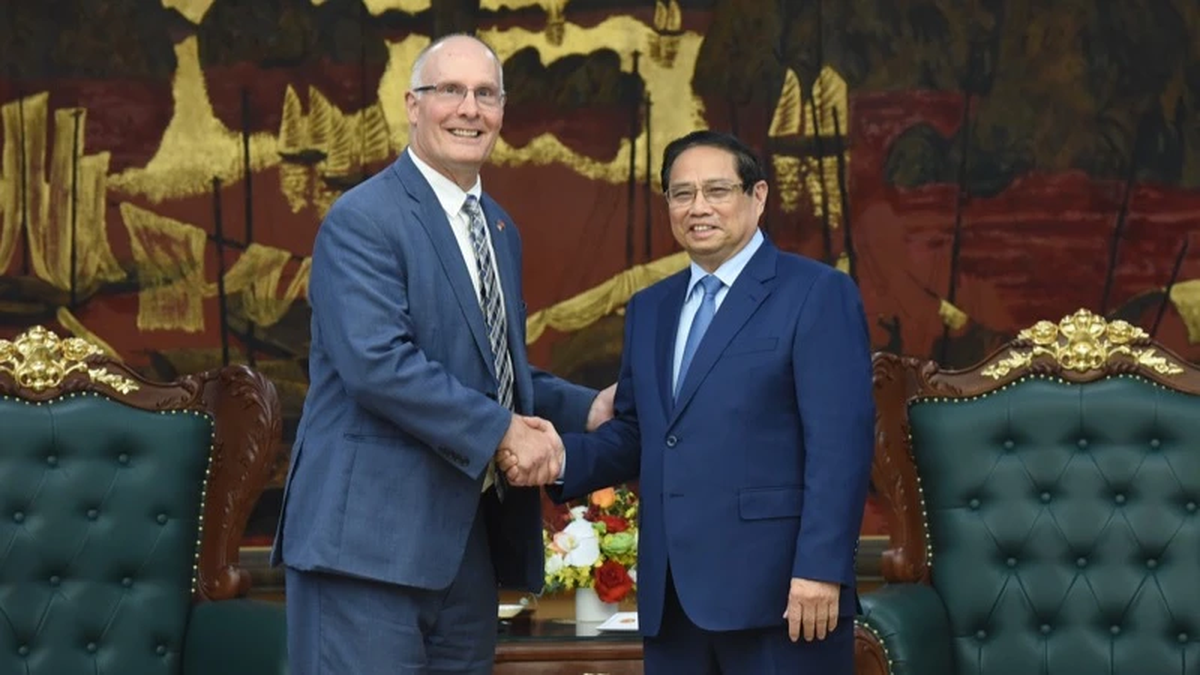
![[Photo] General Secretary To Lam works with the Central Policy and Strategy Committee](https://vphoto.vietnam.vn/thumb/1200x675/vietnam/resource/IMAGE/2025/5/28/7b31a656d8a148d4b7e7ca66463a6894)



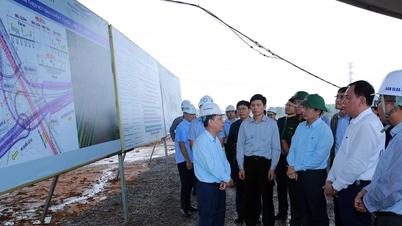








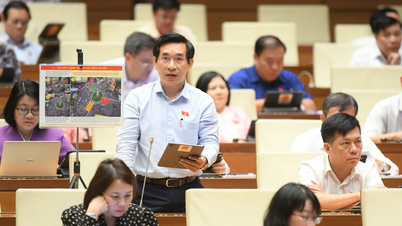



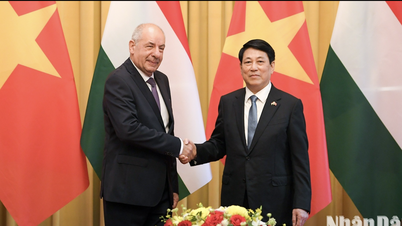




















































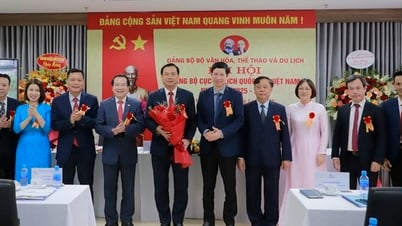





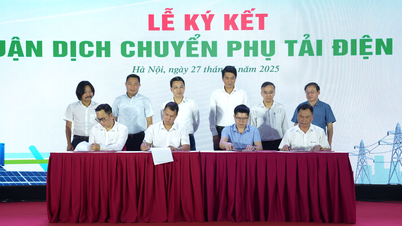




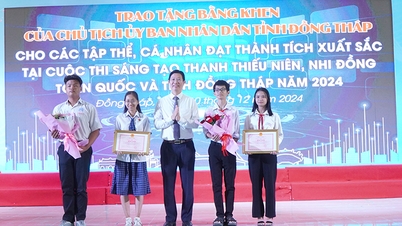













Comment (0)